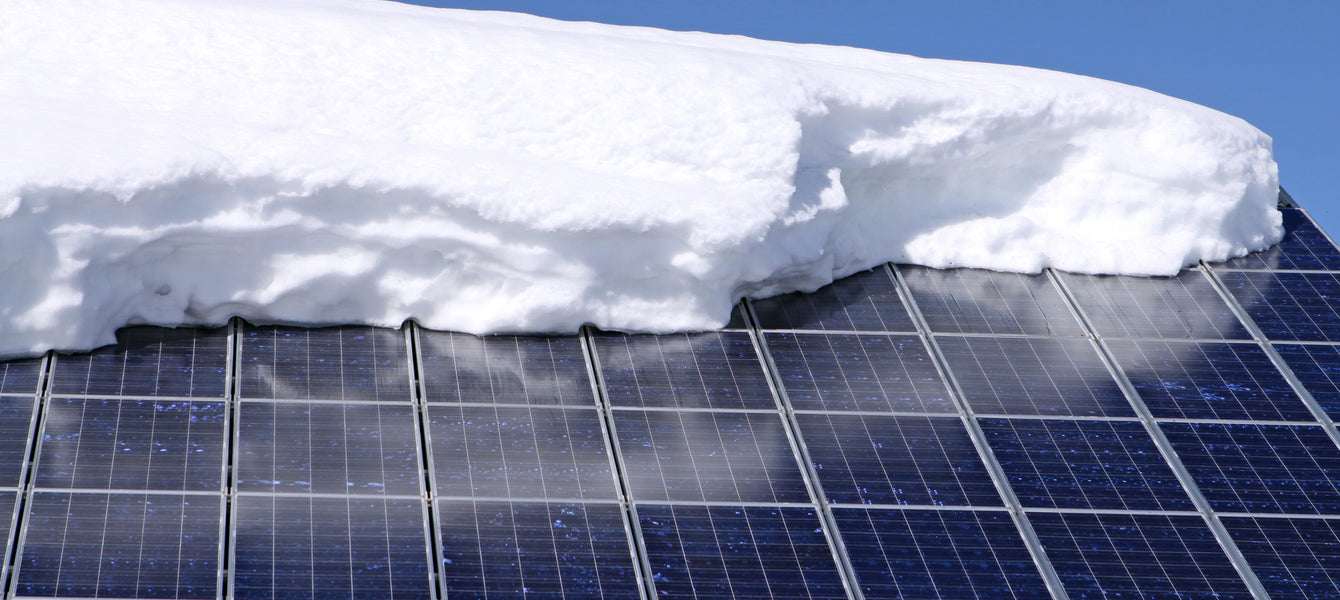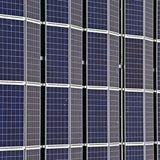Do Solar Panels Work On Cloudy Days?

The more light a solar panel absorbs, the higher the amount of energy it can produce. This is why we typically put solar panels on our rooftops, where they have the greatest access to direct sunlight. Yet, a common concern amongst solar panel users is whether they work efficiently in bad weather. Furthermore, solar panels are often tested under a solar simulator that replicate ideal sunny conditions, but how well does this reflect their performance on overcast or cloudy days?
It is true that solar panels are more efficient during sunny days. However, solar panels can still generate electricity through cloudy weather and long winters. There are year-round benefits to owning solar panels, even with reduced efficiencies.
Do Solar Panels Work on Cloudy Days?
Yes, solar panels do work on cloudy days.
Solar panels work by absorbing photons of visible light and converting this to electricity. That means that if there is enough light for you to see outside, there is enough visible light for solar panels to absorb and produce electricity.
Despite this, clouds do reduce how effective solar panels are. The denser the cloud coverage, the less photons that can reach the panel, meaning less electricity will be generated.
In the UK, the cloudiest month of 2023 (March) produced 59% less solar power than the sunniest month (June). However, it was still not the lowest energy-producing month of the year.
If you live in an area that is often overcast, high efficiency solar panels, such as monocrystalline panels, will help to improve the amount of electricity produced during cloudy weather. In monocrystalline solar panels, each solar cell is made from a single silicon crystal rather than many smaller fragments melded together. This allows electrons from the generated current to move around more freely, resulting in a higher electrical output.
Do Solar Panels Work in the Rain?
Yes, solar panels also work in the rain because they are completely waterproof. During manufacture, solar panels are covered by high-strength tempered glass and moisture-resistant back sheets. These layers protect the solar cells in the panel from environmental damage. Often, solar panels will benefit from rain washing away dirt and dirt particles that can block sunlight.
In the UK, a country famous for its rainy weather, solar panel installations are at a record high. As of 2023, there were over 1.7 million solar panel installations across the UK, with that number set to increase.
Additionally, new technology is emerging which may soon allow us to harvest energy from raindrops through solar panels. Triboelectric nanogenerators (TENGs) are simple devices that can generate energy from liquid-solid contact, for example with droplets of rain.
In a TENG, electrical charges are separated with two different contacting materials. The two materials move relative to each other and the electrostatic induction effect results in a usable alternating potential difference.
TENGs have previously faced technical limitations that prevent them from being used at a significant scale efficiently, but rapid technological advancements could see them being implemented into our solar panels in the future.
Do Solar Panels Work in Winter?
Yes, solar panels do work in winter. Solar panels typically work best in the summer when there are more hours of direct sunlight to collect energy from. However, solar panels continue to work year-round, including during the winter.
Even though they still work, solar panels produce less power during winter months. During winter, the days are shorter and the sun sits lower in the sky which reduces the number of photons that will reach a solar panel.
More frequent cloud coverage and rainy days will further decrease how effective solar panels are during winter. On the shortest day of the year in 2023, 92% less solar energy was produced compared to the longest day. However, the amount of energy generated on the shortest day is still equivalent to the energy needed to power over 70,000 UK homes!
Do Solar Panels Work in the Cold or Snow?
Yes, solar panels will work in the cold (they might even work better). Solar panels rely on the light from the sun to produce electricity, not heat from the sun. This means solar panels continue to work during cold weather.
Interestingly, colder temperatures can be beneficial to solar panels. Like most electrical equipment, solar panels perform better and are more efficient when they are at a lower temperature.

Before being hit with sunlight, the electrons within a solar panel have a low energy. The colder the temperature, the lower the energy of the electrons. Once sunlight reaches the solar panel, the electrons gain energy and a voltage is generated. The larger difference between the energy of the electrons before and after will result in a higher voltage, generating more electricity.
While colder temperatures are beneficial, thick snow can block sunlight from reaching the solar panels. To tackle this issue, solar panels are fitted at an angle to allow snow to slide off of their surfaces. Any snow that remains will typically melt quickly due to the residual heat produced by the solar panels.
Solar Simulator

Learn More
 Do Solar Panels Work At Night?
Do Solar Panels Work At Night?
Solar panels are not able to generate electricity during the night. Solar panels work by absorbing photons of visible light and converting this to electricity. Of course, at night, there is no sunlight for solar panels to absorb.
Read more... Monocrystalline vs Polycrystalline Solar Panels
Monocrystalline vs Polycrystalline Solar Panels
Each uses slightly different materials or technology to achieve the same goal: convert the sun’s energy into useable electricity. Of these, monocrystalline and polycrystalline solar panels are by far the most popular choices.
Read more...Contributors
Written by
Scientific Writer
Diagram by
Graphic Designer
Data from
PV Live by Sheffield Solar (licensed under CC BY 4.0)